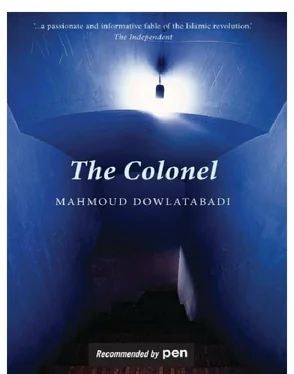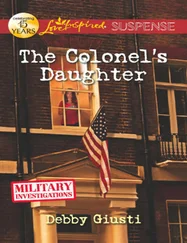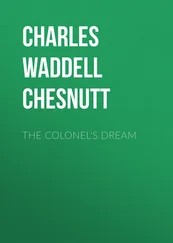No, in fact they were living on the same planet. But each of them reckoned to have found their own answers to life. They showed me respect but, at bottom, they did not believe in me. When it came down to it, they saw me as an officer of the Shah, although they granted that I’d had no part in the crime that was Dhofar. But even that couldn’t prevent them from regarding me as a creature of the old regime.
They knew all about the pyramid structure of the Shah’s army, but I could never get them to accept the truth. My children did not despise me, but I felt their contempt deep within me. Maybe they were brighter than me and were simply foreseeing the day when their father, the great patriotic military man, would end up as an old pigeon fancier and a setar player who couldn’t even play any more. And if I hadn’t killed their mother, would they even pay me the slightest attention nowadays? Who knows? But I did kill my wife, and it wasn’t difficult. Which was how I ended up going to the detention barracks without a care in the world.
“Did you really kill your wife, colonel?”
“Yes, I did. Does that surprise you?”
“And you didn’t go to Dhofar?”
“As you can see, no.”

“We’re here, colonel. Please step down.”
“Yes, all right, just a minute.”
The back doors of the ambulance opened and practised hands pulled the coffin out. The coffin was light, very light, feather-light. They put it down in the mud next to one of the graves and stood aimlessly around it. In the darkness, one could not make out which prominent family the grave belonged to. It was still raining, which was probably why the driver hauled himself over to the passenger side, stuck his head out of the window and told one of the policemen, whom he addressed as Ali Seif, that it was time to get back. This was when the colonel learned the policeman’s name, and he made an effort to keep it in his head. He thought that it was perfectly natural for the driver to want to get back, as he had done his job. He had taken a lot of trouble, coming out of his way over the muddy, bumpy track up the hill to the graveyard. Ali Seif said nothing to the driver, or perhaps he did and the colonel did not hear him above the hissing of the rain. The driver started to move off and they all knew that he would have to reverse first to find a wider space to turn round in. They kept staring at the ambulance as it went off, clearly worried that one of its back wheels would slide off the track and get stuck in the mud. Only when it had got to a clear space, turned round, accelerated down the hill and disappeared did they breathe a sigh of relief. They looked at each other and then realised that they were still some way from the mortuary, where they needed to wash the body before burying it. the colonel, in some puzzlement, supposed that the driver had made a mistake and taken them to the graveyard first, instead of to the mortuary.
Of course, it was nothing to do with me. I had never felt the need to commit to memory the geometrical position of the cemetery. I was under arrest when my wife was buried, and at Mohammad-Taqi’s funeral I had my head buried in my shoulders and, apart from sun and dust, I couldn’t see anyone or anything in front of me. I had lost all sense of direction. That day was the first time that I felt no wish to look the world in the face.

They had brought Mohammad-Taqi back from Tehran — it was late January or early February 1979, in the throes of the revolution. At that stage, Amir was still a strong and upstanding young man, not the resigned, one might almost say the confused old man that he later turned into. Without breaking down or letting his grief get the better of him, he knelt down beside his brother, bending right down as if to sniff his brother’s bloodied shirt. Then he stood up again in manly fashion, straight and proud, turned away and took his place alongside the others. the colonel would have expected no less of him. Farzaneh looked as if she were walking on coals and Parvaneh circled round her brother, like a moth flying into a guttering candle flame. 13It was there that the colonel felt that his little daughter’s heart was broken. He asked himself why it is that love and affection are like an abscess that is only lanced by the death of one’s nearest and dearest, then wondered what on earth had made him come up with such a horrible analogy of love. He had had no time to dwell on this, though, as little Masoud had gone mad at his brother’s martyrdom. He had thrown himself on the bier, weeping and wailing, and had then stood up, held up his clenched fists in the air and, with the veins in his neck bulging, bellowed out, ‘Oh my God!’ the colonel heard Masoud’s screams but, over the angry shouts of the crowd, he could not make out what he was yelling. At that moment, it dawned on the colonel how many people had prior claims on the blood of his children. Something within him snapped and he was overcome by a feeling of bitterness and alienation from the proper emotions of a father whose son has just been killed. He cracked up, turned away from the world and became a hermit in a corner, far from the madding crowd, there to end his days. He felt as if his spine had broken and he could not walk upright; then all of a sudden, he felt Parvaneh throwing herself into her father’s arms. For a moment, the colonel had to forget his own misery and he took hold of his daughter’s little shoulders to try and still the alarming, sobbing convulsions that shook her whole body from head to foot.

“We should have taken her to the mortuary first, colonel.”
“Yes, I thought so too. We should have. Let’s take her there now… You lead the way.”
The bier weighed no more than a pigeon’s wing. Even so, the colonel wished that he had brought Amir to hold one of its feet. It might not weigh much, but the done thing was for four people to carry it on their shoulders. Ali Seif solved the problem. He got the colonel and the other fellow to carry one end on their shoulders, while he supported the other end on his fists, balanced on his barrel chest. And so they trudged off through the graves in the mud and slush. When they found the mortuary and had set the coffin down, the colonel felt his sweat pouring out of his ears. He was soaked through, as much by sweat on the inside as by rain on the outside. He looked as though he had just been fished out of a river.
Once more, the three of them found themselves standing aimlessly beside the coffin. It was dark as a tomb inside the mortuary and they could scarcely make one another out. As they hung about, uncertain what to do, it struck the colonel that the policemen must be exhausted, and possibly even a little spooked, by all this miserable portering, even though they probably would not admit it. They were all tired, each in their own way. They were all waiting for someone to break the silence of this deathly blackness. The only sign of life was the sound of their heavy breathing, like criminals about to embark on a job. The chilly, airless atmosphere in the anteroom, with the rain battering down on the mortuary’s rusty tin roof, made his skin creep. The bulging walls were wet and clammy. Reeking of a mixture of damp, decay, camphor and cedar-leaf oil, they felt swollen by the remembrance of endless hideous deaths. This was not like the rain and mud outside. The dampness on the floor here seeped through the soles of their shoes into their feet, worked its way into the flesh and up into the guts and sent a shiver of nausea right to the marrow of their bones. And the silence, the silence of the ghosts… The colonel imagined himself and the two policemen as coagulated and frozen solid, like exclamation marks, beside the coffin. His sight seemed to have mildewed over, his breath stank of decay and his body felt as if it was decomposing into cold slippery sweat and was about to freeze solid.
Читать дальше















